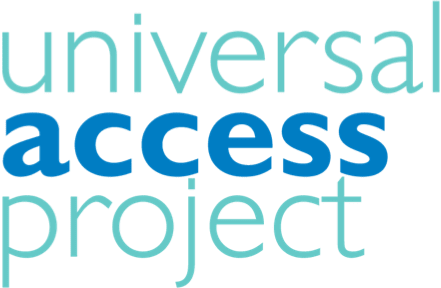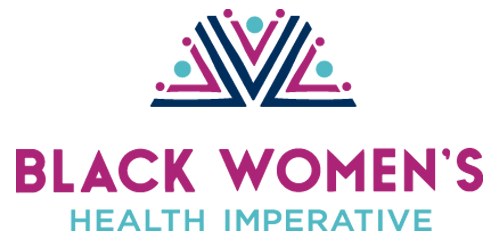U.S. Foreign Policy Partners
Through advocacy, strategic communications and media engagement, the Universal Access Project supports transformational U.S. foreign policy in the pursuit of health and rights for all.
We connect progressive donors and leading advocates to advance U.S. leadership on global sexual and reproductive health, rights and justice.
From advocacy groups to justice organizations, research institutes and more, each of our foreign policy partners plays a unique and essential role in advancing the movement for global sexual and reproductive health, rights and justice (SRHRJ) through bold U.S. foreign policy leadership. The Universal Access Project and our partners are committed to upholding high standards of equity, transparency and movement building.
Learn more about the principles that guide our U.S. Foreign Policy partnerships.
Black Women’s Health Imperative
The Black Women’s Health Imperative (BWHI) is a national non-profit organization dedicated to advancing health equity and social justice for Black women, across the lifespan, through policy, advocacy, education, research, and leadership development. The organization identifies the most pressing health issues that affect the nation’s 22 million Black women and girls and invests in the best of the best strategies and organizations that accomplish its goals.
BWHI uses its UAP grant to promote SRHRJ through advocacy, programs, events, coalition leadership and congressional briefings in the following key areas: increased global SRHRJ funding, access, rights, programs and supply chains to support humanitarian investments in global sexual and reproductive healthcare.
CARE
Founded in 1945 with the creation of the CARE Package®, CARE is a leading humanitarian organization fighting global poverty. CARE puts women and girls at the center because we know that we cannot overcome poverty until all people have equal rights and opportunities. Last year, CARE worked in 104 countries and reached more than 92 million people around the world. To learn more, visit www.care.org
CARE uses their UAP grant to influence policymakers by leveraging their extensive Learning Tours alumni network, employ long-term Hill and civil society partnerships, and engage constituents across the U.S. to build and maintain strong support in Congress for U.S. foreign policy leadership on global SRHRJ.
The Guttmacher Institute
Established in 1968, the Guttmacher Institute is an action-oriented think tank that works to advance sexual and reproductive health and rights globally. The Institute is widely known among advocates, policymakers, journalists and scholars as a source for rigorous research, incisive analysis and sophisticated communications. In 2018, the Institute was the recipient of the United Nations Population Award, in recognition of its high-impact work done in partnership with organizations across the Global South.
The Institute uses its UAP grant to advance SRHR policies and defend against attacks on U.S. foreign aid through the dissemination of rigorous, policy-relevant evidence; by contributing to the strategic priority-setting of the International Family Planning Coalition; and through policymaker education and champion-building.
“The support of UAP is crucial to achieving the Guttmacher Institute’s efforts to accelerate progress on SRHRJ in low- and middle-income countries.… [F]unds to enable us to leverage the resulting evidence for policy change are all too scarce. By allowing us to bring timely research and incisive policy analysis to policymakers, sector leaders, thought leaders and the media, UAP support enables us to maximize our impact on policy.”
International Center for Research on Women
The International Center for Research on Women (ICRW) has been the world’s premier applied research institute focused on women and girls for over four decades. Founded in 1976, ICRW is a private, nonprofit organization with offices in the United States, India, Kenya and Uganda that conducts and supports work in more than 65 countries.
ICRW uses its UAP grant to leverage its resources as a research institute to synthesize and highlight the latest evidence supporting the U.S.’s embrace of SRHR as a critical component of U.S foreign policy – including in multilateral cooperation – and uses its position as a leader of a growing coalition of voices calling for SRHR and other gender equality issues to be front and center in U.S. foreign policy.
“UAP’s partnership provides the International Center for Research on Women the opportunity to have dedicated time for advocacy on key SRHRJ issues and participate in spaces like [the International Family Planning Coalition], which is critical for our work advocating for gender equality.”
National Birth Equity Collaborative
The National Birth Equity Collaborative (NBEC) seeks to provide research to promote healthier birth experiences and health outcomes, especially for Black women and birthing people, and works with organizations, communities and other stakeholders to develop and implement strategies to achieve health equity goals. NBEC provides training and technical assistance for organizations that value community voices and strive to improve the lives of Black families, including ensuring optimal birth conditions for all people.
NBEC uses its UAP grant to advocate for transnational reproductive justice and birth equity
PAI
PAI champions policies that put women, youth and at-risk communities in charge of their sexual and reproductive health and rights. PAI works with policymakers in Washington, D.C., and its network of more than 120 funded partners across 36 countries to remove roadblocks to access sexual and reproductive health services and support – including contraception and safe abortion. For nearly six decades, PAI has helped communities succeed by upholding their basic rights.
PAI uses its UAP grant to cultivate a broad, knowledgeable, engaged base of sexual and reproductive health and rights champions within the administration and in Congress. Together with these champions, the organization advocates increasing U.S. bilateral and multilateral family planning and reproductive health funding and seeks to advance policies to support the estimated 218 million women in low- and middle-income countries who want to prevent or delay pregnancy but still face significant barriers to using modern contraceptive methods.
“The UAP partnership allows PAI to bring the stories we hear globally from our partners directly to the U.S. government as we highlight the intersections between sexual and reproductive health and rights and other global health and gender issues. PAI can educate U.S. policymakers and hold them accountable by producing detailed research and policy analysis.”
Planned Parenthood Federation of America
Planned Parenthood Federation of America (PPFA) champions sexual and reproductive health access, education and rights in the U.S. and around the world. PPFA does this by educating policymakers and cultivating champions in Congress, strengthening the will of those champions for prioritizing gender equality in U.S. development policy, cultivating strong U.S. leadership in international negotiations and leveraging grassroots advocacy in international family planning and reproductive health.
PPFA uses its UAP grant to educate new and potential champions about the importance of U.S. foreign assistance and policy to expand access to sexual and reproductive health around the world and works alongside coalition partners and fellow grantees to achieve growing support for and advance critical global sexual and reproductive health and rights funding and bold policy priorities.
“In addition to the valuable contributions from UAP to support Planned Parenthood Federation of America’s global advocacy, we deeply appreciate the thought leadership and convening capacity of the UAP partnership.… [These efforts] helped start the 117th Congress and new administration with a high-level dialogue that mobilized the historic congressional support for global SRHR from the House.… UAP-hosted webinars have created opportunities to engage donors, the media and the public on global advocacy priorities and provide a platform for both PPFA’s global advocacy team and our global partners to promote our advocacy agendas.”
SisterSong
SisterSong Women of Color Reproductive Justice Collective is a multiracial, multicultural national organization created in 1997 to build a national movement for reproductive justice reproductive justice, the human right to maintain personal bodily autonomy, birth when and as we choose and parent in safety and sufficiency. Led by diverse women and trans people of color, SisterSong continues to support a reproductive justice movement, now composed of dozens of organizations under BIPOC (Black, Indigenous and people of color) women and trans leadership. Work is national, emphasizing the South. SisterSong’s mission is to strengthen and amplify the collective voices of Indigenous women and women of color to achieve reproductive justice by eradicating reproductive oppression and securing human rights.
SisterSong’s UAP grant brings the reproductive justice movement and framework into U.S. foreign policy work related to sexual and reproductive health and rights.









